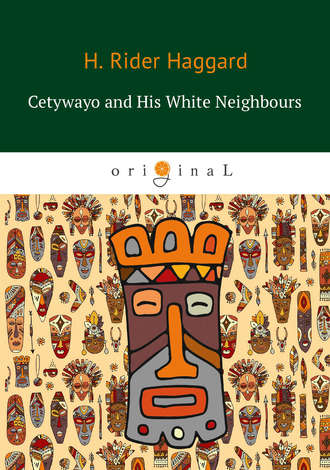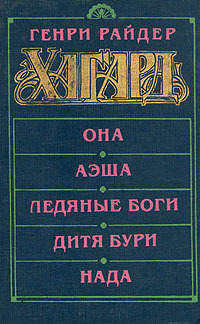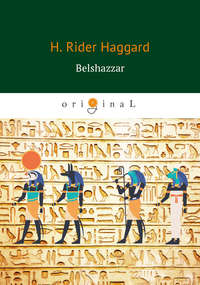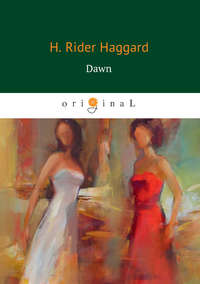
Полная версия
Cetywayo and His White Neighbours
If nothing is going to be done, then it becomes a question whether or no Cetywayo should be sent back.
The large majority of the Natalians consider that his restoration would be an act of suicidal folly, and their opinion is certainly entitled to great weight, since they are after all the people principally concerned. The issue of the experiment would be a matter of comparative indifference to people living 7000 miles away, but is naturally regarded with some anxiety by those who have their homes on the borders of Zululand. It is very well to sympathise with savage royalty in distress, but it must be borne in mind that there are others to be considered besides the captive king. Many of the Zulus, for instance, are by no means anxious to see him again, since they look forward with just apprehension to the line of action he may take with those who have not shown sufficient anxiety for his return, or have in other ways incurred his resentment. One thing is clear, to send the king back to Zululand is to restore the status in quo as it was before the war. There can be no half measures about it, no more worthless paper stipulations; a Zulu king must either be allowed to rule in his own fashion or not at all. The war would go for nothing, and would doubtless have to be fought over again with one of Cetywayo’s successors.
Also it must be remembered that it is one thing to talk of restoring Cetywayo, and another to carry his restoration into effect. It would not simply be a question of turning him down on the borders of Zululand, and letting him find his own way back to his throne, for such a proceeding would be the signal for the outbreak of civil war. It is not to be supposed that John Dunn, and those whose interests are identical with Dunn’s, would allow the ex-king to reseat himself on the throne without a struggle; indeed the former has openly declared his intention of resisting the attempt by force of arms if necessary. He is by no means anxious to give up the 15,000 pounds a year his hut-tax brings in, and all the contingent profits and advantages of his chieftainship. If we wish to restore Cetywayo we must first depose Dunn; in fact, we must be ready to support his restoration by force of arms.
As regards Cetywayo himself, I cannot share the opinion of those who think that he would be personally dangerous. He has learnt his lesson, and would not be anxious to try conclusions with the English again; indeed, I believe he would prove a staunch ally. But supposing him re-established on the throne, how long would it be before a revolution, or the hand of the assassin, to say nothing of the ordinary chances of nature, put an end to him, and how do we know that his successor in power would share his views?
Cetywayo’s rule, bad as it was, was perhaps preferable to the reign of terror that we have established, under the name of a settlement. But that we can still remedy if we choose to do so, whereas, if we once restore Cetywayo, all power over the Zulus passes out of our hands.
We have many interests to consider in South Africa, all of which will be more or less affected by our action in this matter. On the whole, I am of opinion that the Government that replaces Cetywayo on the throne of his fathers will undertake a very grave responsibility, and must be prepared to deal with many resulting complications, not the least of which will be the utter exasperation of the white inhabitants of Natal.
Natal and Responsible Government
Natal – Causes of increase of the native population – Happy condition of the Natal Zulus – Polygamy – Its results on population – The impossibility of eradicating it – Relations between a Zulu and his wives – Connection between polygamy and native law – Missionary work amongst the Zulus – Its failure – Reasons of its failure – Early days of Natal – Growth of the native question – Coming struggle between white and black over the land question – Difficulty of civilising the Zulu – Natal as a black settlement – The constitution of Natal – Request for responsible government – Its refusal – The request renewed and granted – Terms and reason of Lord Kimberley’s offer – Infatuation of responsible government party in Natal – Systematic abuse of colonists in England – Colonial speculators – Grievances against the Imperial Government – Sir Henry Bulwer – Uncertain future of Natal – Its available force – Exterior dangers – The defence question shirked by the “party of progress” – The confederation question – The difficulty of obtaining desirable immigrants – The only real key to the Natal native question – Folly of accepting self-government till it is solved.
Natal has an area of about 18,000 square miles, and its present population is, roughly, 25,000 whites and 400,000 natives of the Zulu race. When, in 1843, it first became a British colony, the number of natives living within its borders was very small, and they were for the most part wanderers, fragmentary remnants of the tribes that Chaka had destroyed. I shall probably be under, rather than over the mark, if I say, that the Zulu population of the colony has multiplied itself by ten during the last thirty years. Two causes have combined to bring about this extraordinary increase; firstly, wholesale immigration from the surrounding territories; and secondly, the practice of polygamy.
This immigration has been due to a great want of foresight, or want of knowledge, on the part of the Home authorities, who have allowed it to go on without check or hindrance till it has, in conjunction with its twin evil polygamy, produced the state of affairs it is my object to describe. Ever since its first establishment as a colony Natal has been turned into a city of refuge for the native inhabitants of Zululand, the Transvaal, Swaziland, and elsewhere. If news came to a Zulu chief that his king purposed to eat him up, he at once fled across the Tugela with his wives and followers and settled in Natal. If the Boers or Swazis destroyed a tribe, the remnant found its way to Natal.
That country, indeed, is to the South African native a modern Isles of the Blest. Once across the border line, and, whatever his crime, he is in a position to defy his worst enemy, and can rest secure in the protection of the Home and local Governments, and of the enactments specially passed to protect him and his privileges. The Government allots him land, or if it does not he squats on private land: bringing with him his own peculiar and barbarous customs. In all the world I do not know a race more favoured by circumstances than the Natal Zulus. They live on the produce of the fields that their wives cultivate, or rather scratch, doing little or no work, and having no occasion to do any. They are very rich, and their taxes are a mere trifle, fifteen shillings per annum for each hut. They bear no share of the curse that comes to all other men as a birthright; they need not labour. Protected by a powerful Government, they do not fear attack from without, or internal disorder. What all men desire, riches and women, are theirs in abundance, and even their children, the objects of so much expense and sore perplexity to civilised parents, are to them a source of wealth. Their needs are few; a straw hut, corn for food, and the bright sun. They are not even troubled with the thought of a future life, but, like the animals, live through their healthy, happy days, and at last, in extreme old age, meet a death which for them has no terrors, because it simply means extinction. When compared to that of civilised races, or even of their own brethren in the interior, their lot is indeed a happy one.
But the stream of immigration, continuous though it has been, would not by itself have sufficed to bring up the native population to its present enormous total, without the assistance of the polygamous customs of the immigrants.
I believe that inquirers have ascertained, that, as a general rule, the practice of polygamy has not the effect of bringing about an abnormal growth of population. However this may be elsewhere, in Natal, owing in great measure to the healthy customs of the Zulu race,[7] the rate of increase is unprecedented. Many writers and other authorities consider polygamy as an institution, to be at once wicked and disgusting. As to its morality, it is a point upon which it is difficult to express any opinion, nor, indeed, does the question enter into the scope of what I have to say; but it must be remembered that in the case of the Zulu his whole law and existence is mixed up with the institution, and that it is necessary to him to repair the gaps made in his ranks by war. Violent anti-polygamists in this country always make a strong point of the cruelty it is supposed to involve to the women, and talk about the “violation of their holiest feelings.” As a matter of fact, sad as it may appear, the Zulu women are much attached to the custom, nor would they, as a general rule, consent to marry a man who only purposed taking one wife. There are various reasons for this: for instance, the first wife is a person of importance, and takes precedence of all the others, a fact as much appreciated by the Zulu woman as by the London lady. Again, the more wives there are, the more wealth it brings into the family, since in the ordinary course of nature more wives mean more female children, who, when they come to a marriageable age, mean in their turn at least ten cows each (the Government price for a wife). The amount thus obtained is placed to the credit of the estate of the mother of the girl married, and for this reason all Zulu women are extremely anxious to have children, especially female children. Finally, the liking of Zulu women for the custom is bred in them. It has been going on for countless generations, and it is probable that it will go on for so long as the race endures. Nations do not change such habits unless the change is forced on them, with the alternative of extermination.
Polygamy will never be eradicated by moral persuasion, because, even if a native could be brought to think it wrong, which is in itself impossible, its abolition would affect his interests irredeemably. A Zulu’s wives are also his servants; they plough his land and husband his grain, in addition to bearing his children. Had he but one wife most of her time would be taken up with the latter occupation, and then the mealie-planting and gathering would necessarily fall to the lot of the husband, a state of affairs he would never consent to. Again, if monogamy were established, girls would lose their value, and a great source of wealth would be destroyed. It must, however, be understood that Zulu girls are not exactly sold; the cows received by the parents are by a legal fiction supposed to be a gift presented, not a price paid. Should the wife subsequently run away, they are, I believe, returnable.
On these subjects, as is not to be wondered at when so many interests are concerned, the Zulu law is a little intricate. The cleverest counsel in the Temple could not give an opinion on such a case as the following: —
A. has four wives and children by Nos. 1 and 3. On his death his brother, B., a rich man, takes over his wives and property, and has children by each of the four women. He has also children by other wives. On his death, in extreme old age, how should the property be divided amongst the descendants of the various marriages?
It is clear that if such a case as this is to be dealt with at all it must be under native law, and this is one of the great dangers of polygamy. Once rooted in a state it necessitates a double system of laws, since civilised law is quite unable to cope with the cases daily arising from its practice. It is sometimes argued that the law employed is a matter of indifference, provided that substantial justice is done, according to the ideas of people concerned, and this is doubtless very true if it is accepted as a fact that the Zulu population of Natal is always to remain in its present condition of barbarism. To continue to administer their law is to give it the sanction of the white man’s authority, and every day that it is so administered makes it more impossible to do away with it. I say “more impossible” advisedly, because I believe its abrogation is already impossible. There is no satisfactory way out of the difficulty, because it has its roots in, and draws its existence from, the principle of polygamy, which I believe will last while the people last.
Some rely on the Missionary to effect this stupendous change, and turn a polygamous people into monogamists. But it is a well-known fact that the missionaries produce no more permanent effect on the Zulu mind than a child does on the granite rock which he chips at with a chisel. How many real Christians are there in Zululand and Natal, and of that select and saintly band how many practise monogamy? But very few, and among those few there is a large proportion of bad characters, men who have adopted Christianity as a last resource. I mean no disrespect to the missionaries, many of whom are good men, doing their best under the most unpromising conditions, though some are simply traders and political agitators. But the fact remains the same. Christianity makes no appreciable progress amongst the Zulu natives, whilst, on the other hand, no one having any experience in the country will, if he can avoid it, have a so-called Christian Kafir in his house, because the term is but too frequently synonymous with that of drunkard and thief. I do not wish it to be understood that it is the fact of his Christianity that so degrades the Zulu, because I do not think it has anything to do with it. It is only that the novice, standing on the threshold of civilisation, as a rule finds the vices of the white man more congenial than his virtues.
The Zulus are as difficult to convince of the truths of Christianity as were the Jews, whom they so much resemble in their customs. They have a natural disinclination to believe that which they cannot see, and, being constitutionally very clever and casuistical, are prepared to argue each individual point with an ability very trying to missionaries. It was one of these Zulus, known as the Intelligent Zulu, but in reality no more intelligent than his fellows, whose shrewd remarks first caused doubts to arise in the mind of Bishop Colenso, and through him in those of thousands of others.
Another difficulty in the way of the Missionary is, that he is obliged to insist on the putting away of surplus wives, and thus to place himself out of court at the outset. It is quite conceivable that in the opinion of wild and savage men, it is preferable to let the new teaching alone, rather than to adopt it at the cost of such a radical change in their domestic arrangements. As a case in point I may quote that of Hlubi, the Basutu appointed chief of one of the divisions of Zululand, by Sir G. Wolseley. Hlubi is at heart a Christian, and a good man, and anxious to be baptized. The missionaries, however, refuse to baptize him, because he has two wives. Hlubi therefore remains a heathen, saying, not unnaturally, that he feels it would be impossible for him to put away a woman with whom he has lived for so many years.
Whilst polygamy endures Christianity will advance with but small strides. It seems to me that we are beginning at the wrong end. We must civilise first and Christianise afterwards. As well try to sow corn among rocks and look to gather a full crop, as expect the words of Grace and Divine love to bear fruit in the hearts of a people whose forefathers have for countless generations been men of blood, whose prized traditions are one long story of slaughter, and who, if they are now at peace are, as it were, only gathering strength for a surer spring. First, the soil must be prepared before the seed is sown.
To do this there is but one way. Abolish native customs and laws, especially polygamy, and bring our Zulu subjects within the pale of our own law. Deprive them of their troops of servants in the shape of wives, and thus force them to betake themselves to honest labour like the rest of mankind.
There is only one objection in the way of the realisation of this scheme, which would, doubtless, bring about, in the course of a generation, a much better state of things, and gather many thousand converts into the fold of the Church; and that is, the opportunity has, so far as Natal is concerned, been missed – the time has gone by when it could have been carried out. To young countries, as to young men, there come sometimes opportunities of controlling their future destinies which, if not seized at the moment, pass away for ever, or only to return after long and troubled years. Natal has had her chance, and it has gone away from her, though through no fault of her own. If, when the colony was first settled, the few natives who then lived there had been forced to conform to the usages of civilised life or to quit its borders; if refugees had been refused admission save on the same terms, it would not occupy the very serious position it does at the present moment.
To understand the situation into which Natal has drifted with reference to its native inhabitants, it is necessary to premise that that country has hitherto had practically no control over its own affairs, more especially as regards native legislation.
In its early days it was a happy, quiet place, a favoured clime, where the traveller or settler could find good shooting, cheap labour, and cheap living. No enemy threatened its rest, and the natives were respectful and peaceful in their behaviour. But it was in those days that the native difficulty, that Upas tree that now overshadows and poisons the whole land, took root; for slowly, from all parts, all through that quiet time, by ones, by tens, by hundreds, refugees were flowing in, and asking and receiving land to settle on from the Government.
It is not, however, to be supposed that the local officials did not perceive the gathering danger, since it has again and again been pointed out to different Secretaries of State, and again and again been ignored by them, or put off for the consideration of their successors. Hand-to-mouth legislation has always been the characteristic of our rule in South Africa. On one occasion Sir Theophilus, then Mr. Shepstone, went so far as to offer to personally draw off a large portion of the native population, and settle them on some vacant territory bordering on the Cape Colony, but the suggestion was not acceded to, for fear lest the execution of the scheme should excite disturbances amongst the natives of the Cape. Thus year after year has passed away – plan after plan has been put aside, – and nothing has been done.
In the colony a great deal of abuse is poured out on the head of Sir T. Shepstone, to whom the present native situation is unjustly attributed by a certain party of politicians. Sir T. Shepstone was for very many years Secretary for Native Affairs in Natal, but until he came to England, shortly before the termination of his official career, he was personally unknown to the Colonial Office, and had no influence there. It was totally out of his power to control the policy of the Home Government with reference to the Natal natives; he could only take things as he found them, and make the best of such materials as came to his hand. As he could not keep the natives out of the colony or prevent polygamy, he did what he could towards making them loyal and contented subjects. How well he succeeded, and with what consummate tact and knowledge he must have exercised his authority, is shown by the fact that in all these years there has been but one native disturbance, namely that of Langalibalele, and by the further fact that the loyalty of the Natal Zulus stood the strain of the Zulu war. Also, there never has been, and probably never will be, another white man so universally beloved and reverenced by the natives throughout the length and breadth of South Africa.
But Sir T. Shepstone’s influence for good will pass away, as all purely personal influence must, and meanwhile, what is the situation? On the one hand, there is a very slowly increasing, scattered, and mixed population of about 25,000 whites, capable, at the outside, of putting a force of 4000 men in the field. On the other, there is a warlike native population, united by the ties of race and common interests, numbering at the present moment between 400,000 and 500,000, and increasing by leaps and bounds: capable of putting quite 80,000 warriors into the field, and possessing, besides, numerous strongholds called locations. At present these two rival populations live side by side in peace and amity, though at heart neither loves the other. The two races are so totally distinct that it is quite impossible for them to have much community of feeling; they can never mingle; their ideas are different, their objects are different, and in Natal their very law is different. Kafirs respect and like individual Englishmen, but I doubt whether they are particularly fond of us as a race, though they much prefer us to any other white men, and are devoted to our rule, so long as it is necessary to them. The average white man, on the other hand, detests the Kafir, and looks on him as a lazy good-for-nothing, who ought to work for him and will not work for him, whilst he is quite incapable of appreciating his many good points. It is an odd trait about Zulus that only gentlemen, in the true sense of the word, can win their regard, or get anything out of them.
It is obvious that, sooner or later, these two races must come into contact, the question being how long the present calm will last. To this question I will venture to suggest an answer, – I believe the right one. It will last until the native gets so cramped for room that he has no place left to settle on, except the white man’s lands. The white man will then try to turn him off, whereupon the native will fall back on the primary resource of killing him, and possessing himself of the land by force. This plan, simultaneously carried out on a large scale, would place the colony at the mercy of its native inhabitants.
Nor is the time so very far distant when Englishmen and Zulus will stand face to face over this land question. In the early days of the colony, locations were established in the mountainous districts, because they were comparatively worthless, and the natives were settled in them by tribes. Of what goes on in these locations very little is known, except that they are crowded, and that the inhabitants are as entirely wedded to their savage customs as their forefathers were before them. As there is no more room in the locations, many thousands of Kafirs have settled upon private lands, sometimes with and sometimes without the leave of the owners. But, for many reasons, this is a state of affairs that cannot go on for ever. In a few years, the private lands will be filled up, as well as the locations, and what then?
Zulus are a people who require a very large quantity of land, since they possess great numbers of cattle which must have grazing room. Also their cultivation being of the most primitive order, and consisting as it does of picking out the very richest patches of land, and cropping them till they are exhausted, all ordinary land being rejected as too much trouble to work, the possession, or the right of usor, of several hundred acres is necessary to the support of a single family. Nor, if we may judge from precedent, and its well-marked characteristics, is it to be supposed that this race will at the pinch suit itself to circumstances, take up less land, and work harder. Zulus would rather fight to the last than discard a cherished and an ancient custom. Savages they are, and savages they will remain, and in the struggle between them and civilisation it is possible that they may be conquered, but I do not believe that they will be converted. The Zulu Kafir is incompatible with civilisation.
It will be seen, from what I have said, that Natal might more properly be called a Black settlement than an English colony. Looking at it from the former point of view, it is a very interesting experiment. For the first time probably since their race came into existence, Zulu natives have got a chance given them of increasing and multiplying without being periodically decimated by the accidents of war, whilst at the same time enjoying the protection of a strong and a just government. It remains to be seen what use they will make of their opportunity. That they will avail themselves of it for the purposes of civilising themselves I do not believe; but it seems to me possible that they will learn from the white man the advantages of combination, and aim at developing themselves into a powerful and united black nation.









